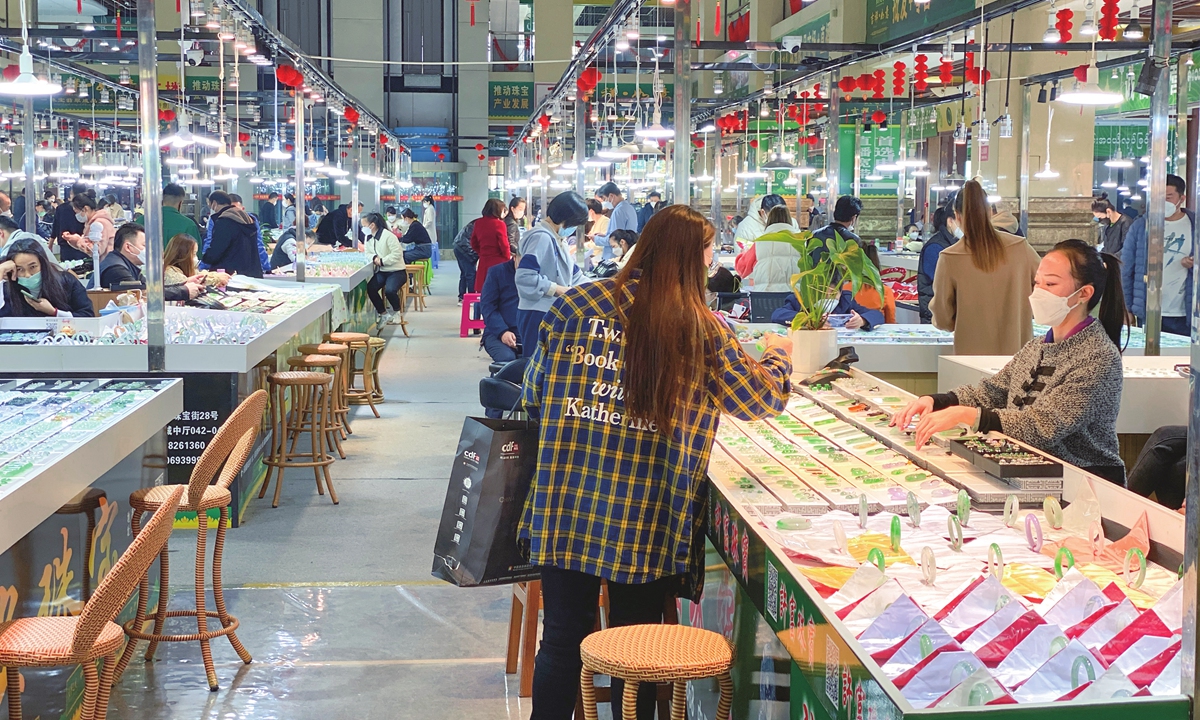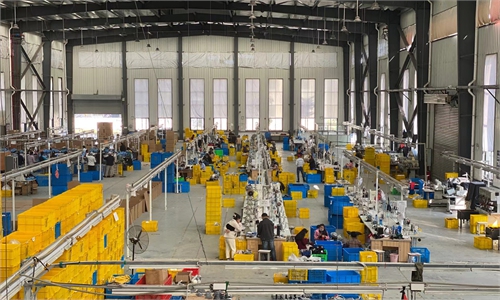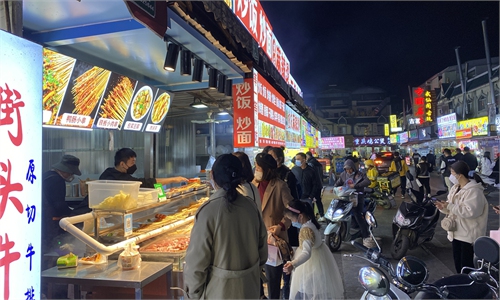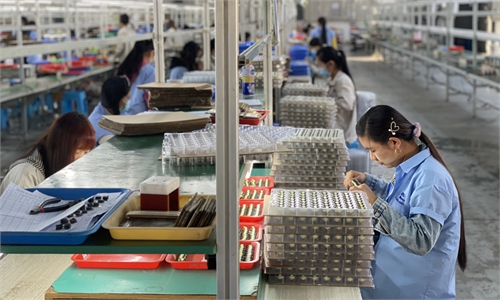
Customers check jade jewelry at a local retail market in Ruili on January 10,2023. Photo: Li Qiaoyi/GT
Ruili in Southwest China's Yunnan Province, a major jade producer in the world that borders Myanmar, embraces renewed vitality for a fresh start following China's policy shift on COVID-19 response.
The Global Times found that a major jade trading market in Ruili has become a leader of livestreaming commerce, where hordes of jade dealers and livestreamers could be seen, endeavoring to sell their products via their internet-hooked electronic devices.
Cai Xin, a representative of the market, told the Global Times that before the pandemic struck, more than 200 jade sellers had settled in the market with annual sales of 3.5 billion yuan ($500 million). "At present, more than 170 merchants have returned to their familiar business, with their daily sales hitting more than 10 million yuan now."
Ruili's jade business is expected to resume to pre-pandemic levels within six months to 12 months, said Cai.
The border city shut down jade trade fair and suspended imports of jade from Myanmar for a protracted time in the past three years due to the pandemic.
"When we proposed resuming work and production, we thought it would take us half a year to see the business come back. Unexpectedly, after we put forward the call to resume operation, more than 100 jade merchants responded within two months," Cai said, believing that more merchants will return to Ruili after the Spring Festival holidays.
The border city has thrived as one of the country's largest jade trading hubs in the 1990s and has since got the nickname as the "City of Jade". Around 70,000 practitioners work in the jewelry industry in Ruili, accounting for 33.4 percent of the city's total population, according to the Xinhua News Agency.
The gemstone and jade businesses in Ruili attract investors and entrepreneurs in and beyond China's borders. People from Myanmar, Pakistan and Nepal have been frequenters to trade jewelry in the city over the years.

Livestreamers pack a major jade jewelry livestreaming center in Ruili on January 9, 2023. Photo: Li Qiaoyi/GT
At present, Ruili is making great efforts to mobilize more merchants to return.
As one of the cities that have experienced the most lockdowns in China in the past three years, Ruili is rapidly returning to its prior prosperity, a local official told the Global Times.
From Sunday, China reopened its borders after the government downgraded the management level of COVID-19 from Class A to Class B, and meanwhile reopened its borders after three years of the pandemic. Over recent months, the country has made an array of active adjustments in its COVID response.
Wang Wenbo, general manager of another local jade market, told the Global Times that 95 percent of the jewelry tenants have been present since mid-November, when the central government announced 20 prevention and control measures to optimize the COVID-19 response.
The daily sales of Wang's market now hit 3-5 million yuan, below the peak level of 8 million yuan, Wang disclosed. A return to pre-virus prosperity can be expected in March.
As the largest land port on the China-Myanmar border, Ruili saw nearly 17 million inbound and outbound passengers, 4.846 million vehicles, and over 17.46 million tons of import and export freight in 2019, official data showed.
Global Times



